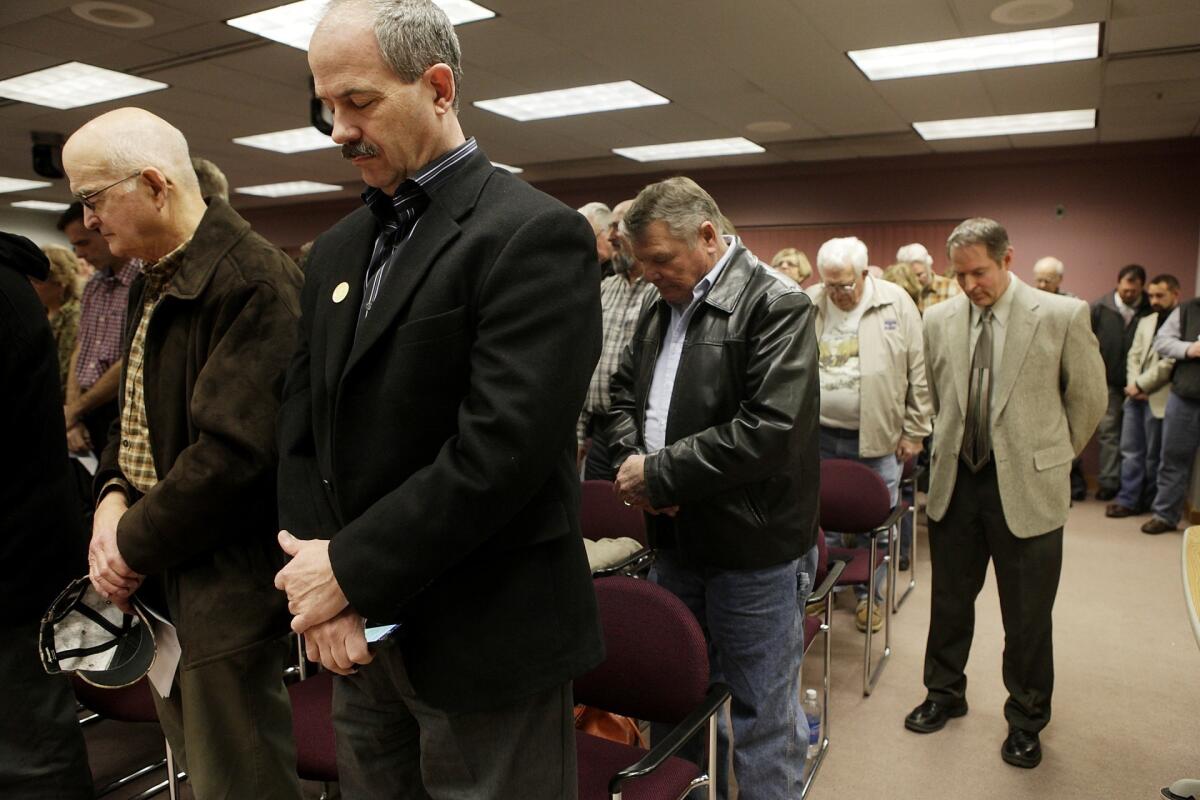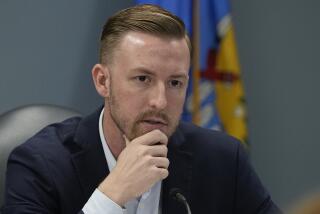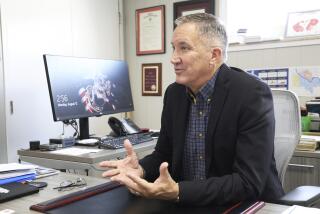Council in Rapid City, S.D., fights to keep prayer at meetings

City Councilman Chad Lewis says he’s a man who relishes tradition. And in Rapid City, S.D., that means starting each council session with a brief prayer led by a local minister.
But now that practice is under attack by a national organization that has filed lawsuits in other cases nationwide involving the separation of church and state.
The Madison, Wis.-based Freedom From Religion Foundation recently sent a letter to Rapid City officials saying that it received a complaint from a South Dakota citizen who objects to the invocations before each public meeting. The group has called for a stop to the practice.
“Prayer at government meetings is unnecessary, inappropriate and divisive,” the group’s January letter to Rapid City officials reads in part. “Council members are free to pray privately or to worship on their own time in their own way. They do not need to worship on taxpayers’ time.”
Lewis, who says he is Christian, smells a forthcoming lawsuit. And for him, those are fighting words.
“Whether or not you’re a big believer in prayers, this practice has been going on in our city for 60 years or more -- longer than anyone can remember,” he tells the Los Angeles Times. “And now there’s some people coming in from the outside and telling us to change our ways, threatening lawsuits.”
He points to the letter’s final paragraph, part of which was in bold letters, that reads, “To avoid the constitutional concerns and the divisiveness these prayers cause within the community, the solution is simple: discontinue government prayers before government meetings.”
Lewis says he’s not alone in feeling bullied. Rapid City Mayor Sam Kooiker calls the letter an unwanted outside attack on the status quo in the conservative Midwestern community. He says he is “strongly in favor of continuing the prayers.”
“We just don’t like someone who comes in from the outside and decides we have to change our ways,” he tells The Times. “That’s never a good way to start a conversation, to come in carrying a big stick. Around here, we think it’s a better idea to address the council in a more civil manner, rather than going right to ‘We’re going to sue you.’ From my perspective, that’s being a bully, and I don’t take well to that.”
Kooiker (pronounced Quaker), tells The Times that he can’t even count the places in South Dakota where public meetings begin with some kind of prayer. He says the state’s National Guard has chaplains who invoke prayer, often before troop deployments to Afghanistan.
At a recent travel and tourism conference, South Dakota First Lady Linda Daugaard “gave a heartfelt speech in Jesus’ name,” he says.
“We’ve got an independent streak up here in South Dakota, but we’re not taking this extreme, controversial out-of-state group lightly,” he says. “We don’t know why they’re picking on Rapid City, but let me tell you this -- they’re picking on the wrong mayor, the wrong council and the wrong town.”
Prayer before public meetings is at issue in three states this week. Besides South Dakota, the Wisconsin foundation has asked the school board in Pickens, S.C., to stop prayer in classes there, calling the practice a constitutional violation. In Virginia, a state Senate committee has approved a constitutional amendment giving the right to pray at school and on all government property.
Lewis, 44, who also works as a Rapid City Realtor and developer, questions why the anti-prayer people are picking on his town, noting that South Dakota’s Legislature and the U.S. Congress open their sessions with a prayer.
“It’s just interesting that they’re not going after the state or the federal government, who are doing the same thing,” he tells The Times.
Not everyone in South Dakota thinks the prayer-before-meeting tradition is a good one. Many agree with the Freedom From Religion Foundation. The organization says the prayers violate the Establishment Clause of the Constitution, which says “Congress shall make no law respecting an establishment of religion.”
One South Dakota magazine editorial reads, in part:
“Christian officials give a Christian pastor a public platform to say things like, ‘in Jesus’ name,’ meaning some of us -- atheists, Jews, Lakota traditionalists, devotees of Jefferson and the First Amendment -- can’t in good conscience say ‘Amen.’
“... We’re not all Christians, Rapid City, but we are all citizens. No church needs your official public affirmation of its faith. But all citizens deserve your affirmation of their equal status. Leave the prayers ‘in Jesus’s name’ to the clergy in their pulpits. At City Hall, focus your words on the mission of justice and mercy that all Americans share.”
Freedom From Religion Foundation officals have said their letter to Rapid City does not explicitly threaten a lawsuit, but they stress that their group will make a nationwide push this year to resolve the prayer issue in courts nationwide.
The group has won similar battles.
In Northern California, the Plumas County Board of Supervisors removed prayer from its meeting agendas after pressure from the Wisconsin organization.
Some people in Rapid City say an acceptable compromise would be to observe a moment of silence before meetings.
That doesn’t wash with Councilman Lewis.
He says he’s ready to fight for the tradition, but only when the time comes.
“We’ll cross that bridge when we come to it. Meanwhile, I’m keeping an open mind,” he tells The Times. “I’m not an idiot who wastes taxpayer time and money. I’m going to wait until it becomes a real issue.”
ALSO:
Judge refuses to dismiss charges in WikiLeaks case
Supreme Court throws out challenge to U.S. wiretapping
Prosecutors highlight identity theft at ‘Craigslist Killer’ trial
More to Read
Sign up for Essential California
The most important California stories and recommendations in your inbox every morning.
You may occasionally receive promotional content from the Los Angeles Times.











